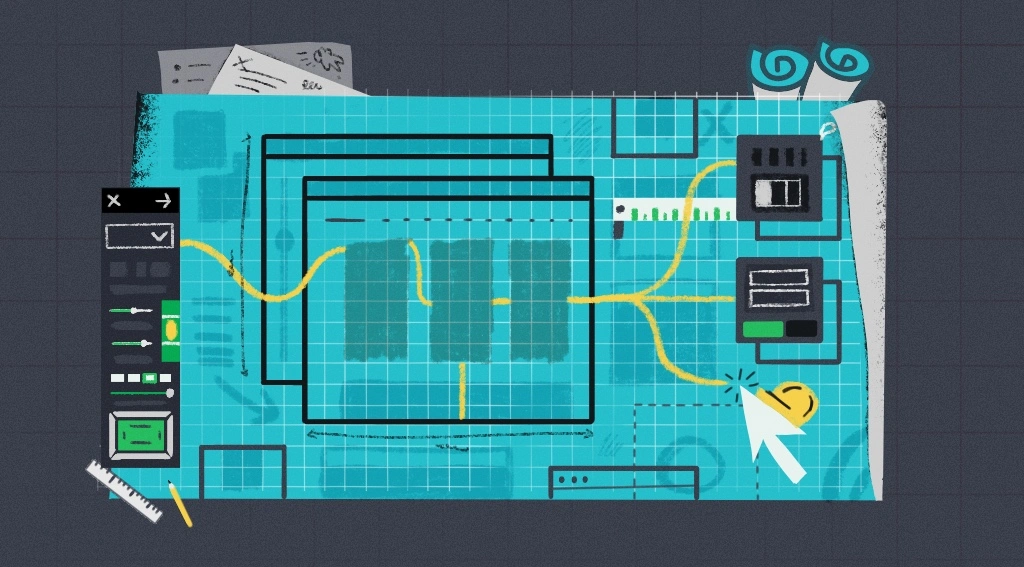A professional website can be used to achieve a variety of purposes. With the website, you can attract new customers, encourage visitors to buy, or increase interest in your brand. The website is also a great marketing and sales tool for almost any online business. This article presents a complete guide on creating your website from scratch. Step by step, we will explain to you the most important issues, starting from defining the website's purpose to taking care of the technical details. This guide will help you:
→ Define goal, audience and type of your website
→ Plan out it's structure
→ Go through every stage of creating a website quickly and without problems
Start Here!
Why do you need a website (even if you don't think so)?
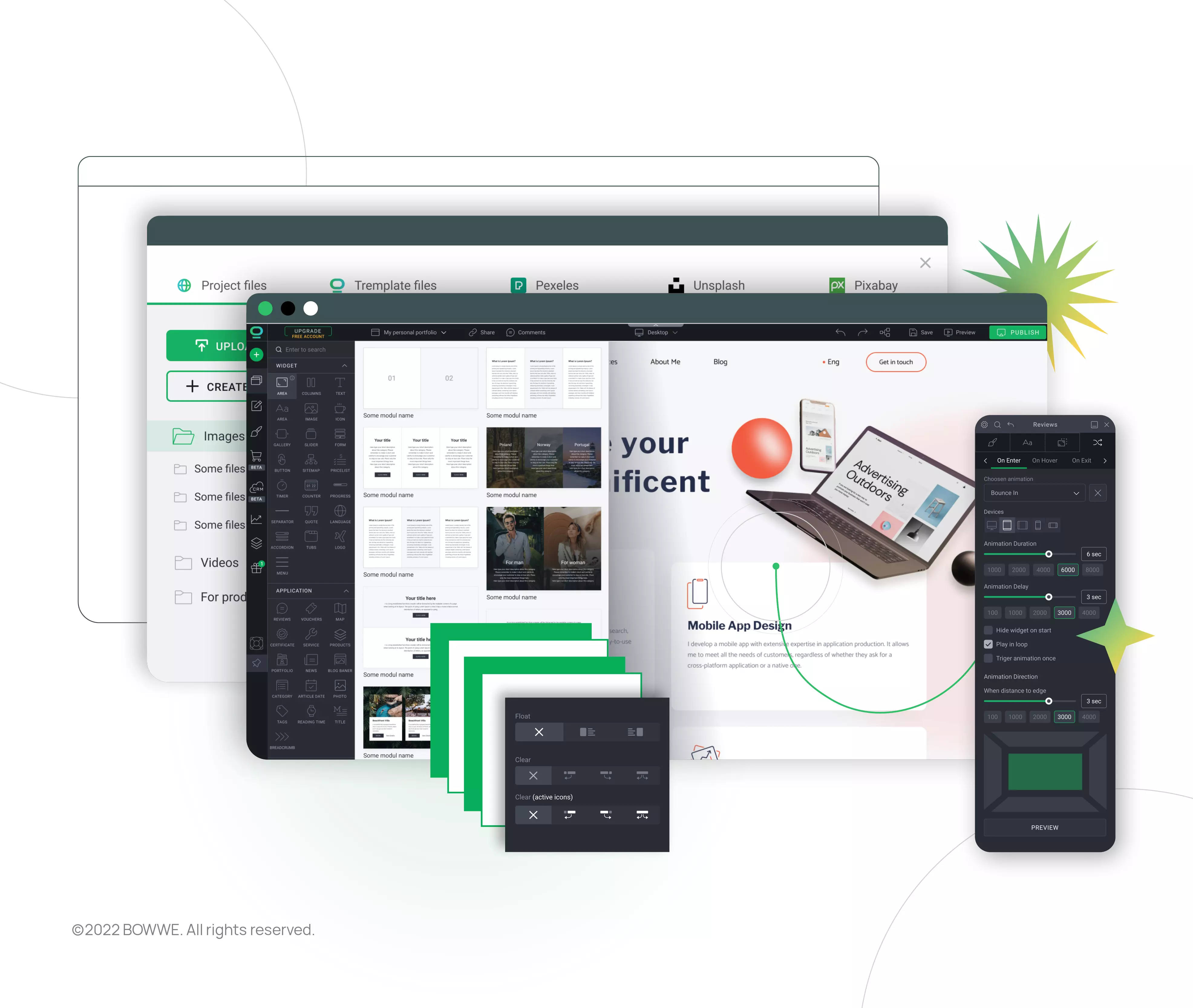
Regardless of whether you are just starting your own business, or maybe you want to accelerate the development of your company (your or your client's), you will need an online presence. Today, however, there are many opportunities to build a brand on the Internet, for example, in social media. So is it worth it to even start a website? Yes, yes! It is best to implement an online marketing strategy on multiple levels to develop your business fully. Here are the benefits of a website for every customer service or business person:
Informing potential customers about your offer
Building trust
A professional website is the best way to make an excellent first impression! You only really have a few seconds to catch the user's attention. If visitors don't find your site interesting within 15 seconds, they will leave it immediately. Remember that blurring a wrong first impression is difficult and takes time that you don't have because the rejected prospect will quickly go to the competition. So if you don't gain his trust in the first moment, you can almost be sure that you have lost him. This is very, very important! The key is to arouse user interest from the first click. This will make your visitors trust you and want to explore your brand's story further
Provision of the necessary information
You present all the most essential information about your business on the website. This means that the potential customer doesn't have to waste time searching for information about you from other sources. Few of your potential customers will spend their time collecting information about your business. If they do not find the necessary information presented clearly in one place, they will quickly become discouraged from getting to know your brand. The website is your best online business card with the necessary data in a nutshell. Thanks to the straightforward navigation on the website, you can guide your visitors step by step through the most critical stages of getting to know your brand.
Image creation
Your own website is the most effective way to create an attractive brand image on the web. How potential customers on the web perceive you impacts the success of your business. So it's worth taking care of a professional website that will make visitors perceive your company positively. This will give you a massive advantage over your competitors and help build a strong brand. A website is a tool that will help you effectively appeal to your audience. That is why it is essential to analyze your target group before creating a website carefully. Only if you get to know your audience's expectations well, you will create a website that meets their needs.
Generating traffic and increasing the number of recipients
Thanks to the website, you will reach a broad audience, regardless of your location. The possibility of positioning pages allows you to influence the recipients, where and when your website will be displayed.
New promotion opportunities
Having a website gives you tons of opportunities for promotion. First and foremost, this is the main place that you can and should direct your prospects to. You can use various strategies and marketing tools to help you increase traffic to your website. SEO, Google Ads ads, e-mail marketing, or social media are just some examples of activities that will increase conversion (e.g., number of registrations, inquiries sent, or sales) on your website.
High position in search results
SEO stands for Search Engine Optimization. These are the activities that help your website rank high in organic search results. Having a website allows you to develop SEO, thanks to which information about your company will be clearly visible on popular search engines. Appropriate optimization of your website SEO (including keywords in the content or placing relevant links) will help you get organic traffic to your website without the need to invest in paid ads.
How to prepare to create a website?
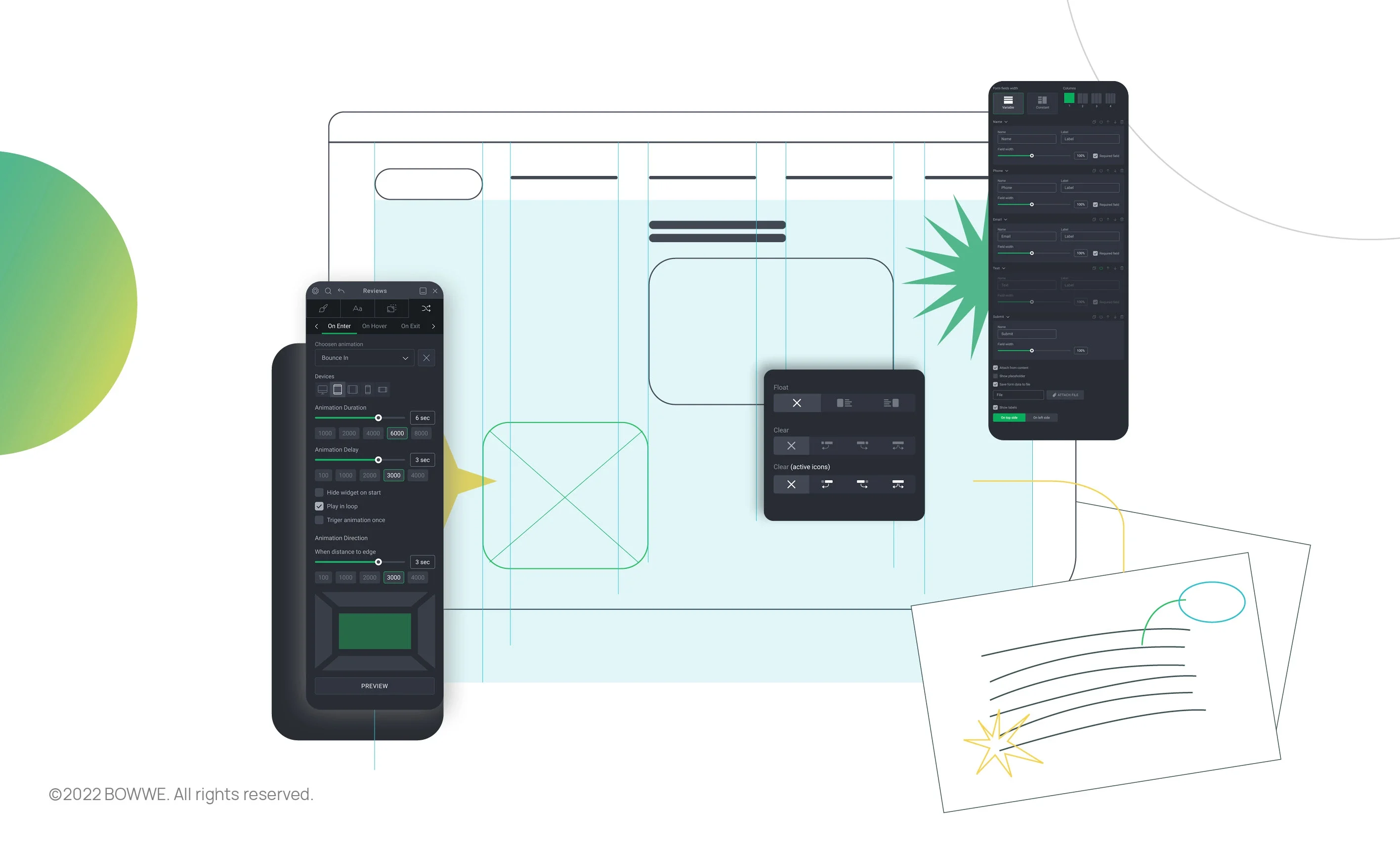
Before designing a website, think about what you want to achieve with it. Remember, even the most beautiful design will not make your website profitable and profitable. The creation of the website should be approached slowly. Here are the most critical steps to take before you begin designing your site:
1. Define your goal
The first step in getting started with your site design is setting a goal. Ask yourself a few important questions:
- Do you want to sell your products using the website?
- Is your main goal to inform users about your services and products?
- Do you want to focus on reaching new customers?
- Or maybe you want to use the site mainly for blogging and sharing knowledge?
Thanks to the answers to these questions, you will lay the foundations of your website's strategy. It will also help you move on to the next steps of designing your entire website from scratch.
Top 8 Website Goals [+ Ways to Achieve Them]
2. Define your audience
You will never achieve significant online success without clearly identifying your target audience. The website's purpose is related to directing it to a specific group of recipients. So you need to create profiles of ideal users of your website. These are the so-called shopping personas. By precisely defining your target audience, you will be able to create a website that responds to the needs of your audience and provides them with precisely what they are looking for. Who could be the perfect use of your website? For example, if you run a foreign language school, your persona will want to work abroad and learn a new language.
3. Choose the type of website
Guided by the purpose of the website and the target audience, go to the choice of the type of website. Here are the most essential types of websites we distinguish:
- Professional website - it is a website with a lot of information about your company, product or brand. A traditional website consists of many subpages and is divided into categories.
- Online store (E-commerce) - an online store broken down by category, offering many product filtering options. This is the best solution if you have a large offer and want to start selling online quickly.
- Blog - will allow you to build loyalty around your brand and generate interest from potential customers. A blog is also an ideal way to generate traffic to your website and increase visibility. Through the blog, Internet users can easily find your website on the web. They have to enter the specific problem or issue in the search engine, which are included as keywords in your blog article. Your articles will appear in search engines for particular queries if your blog entries offer a solution to a given problem. A blog with valuable content is the best way to position your website quickly.
- Landing page - is a perfect way to present products and services, as well as reach new customers. A landing page is a truncated version of a website that encourages you to take a specific action. As a rule, it is a one-page website created to promote a particular product or service. You can get qualified leads to generate traffic or sales using a landing page.
- Online portfolio - this is a type of online showcase where you can fully present your skills. All you need to do is add photos and descriptions of your projects. An ideal option for freelancers and people who want to develop a personal brand.
Remember that you don't have to decide on just one type of website. The advantage of websites is that you can combine many solutions in them. Nothing prevents you from posting a portfolio on your website or connecting an online store and a blog! Your website must serve you as the best support for what you care about!
4. Create a website concept
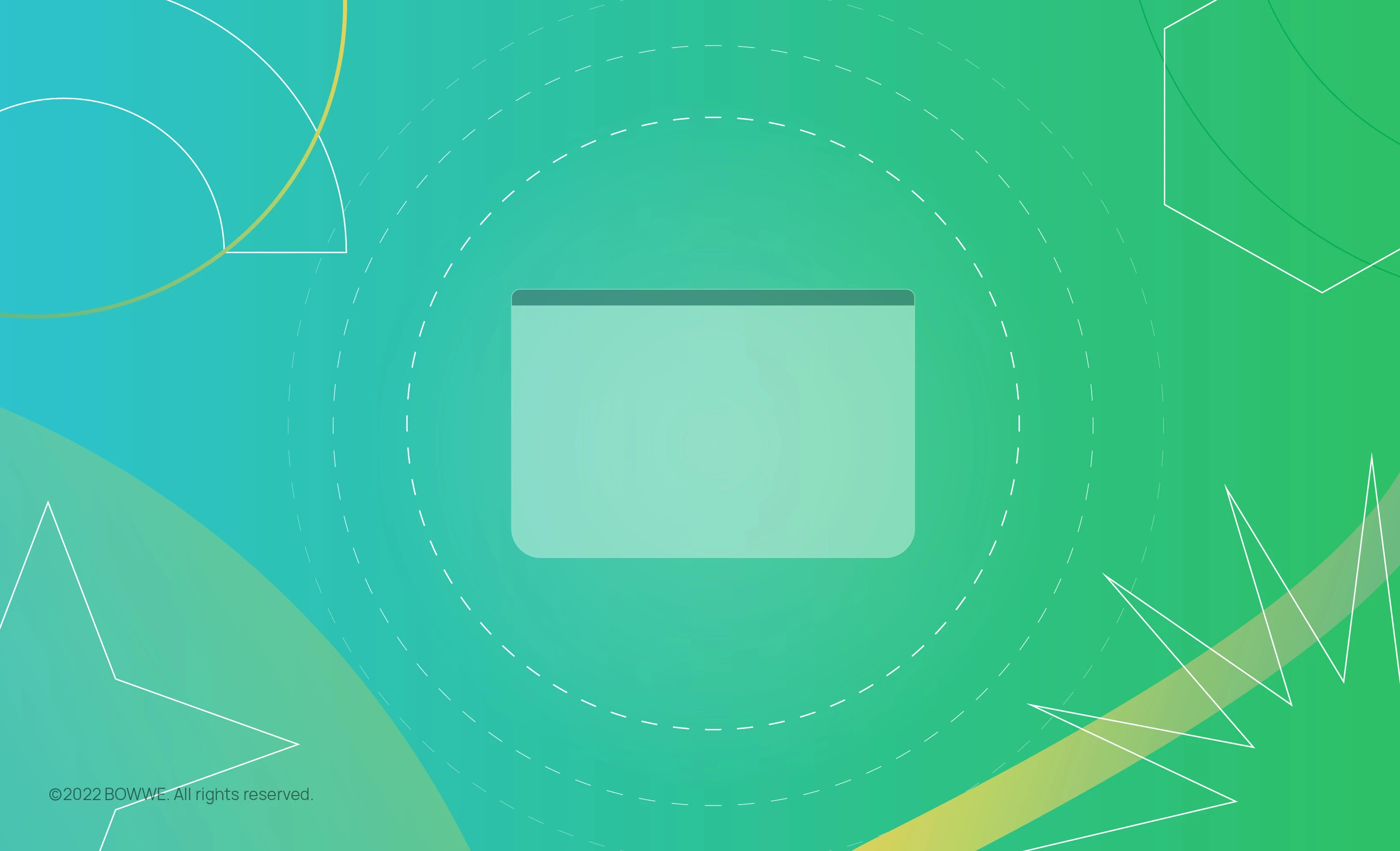
4.1 How extensive should your website be?
It's best to predict at the beginning how extensive your website should be. From this point of view, we distinguish two options:
a) Onepage - this is the simplest type of website that consists of only one page. It works just like a landing page. It doesn't require a lot of content and information. It is a good choice if you do not have comprehensive information to present on your website. A one-page website is a perfect solution for mobile devices. Very intuitive navigation makes it easy to scroll from the level of small screens. So if you are targeting your website to an audience that mainly uses smartphones, a one-page site would be a good choice.
b) Multipage - this is a kind of extensive website, which consists of many subpages and sections. The advantage of multipage websites is the possibility of containing more information, which is conveyed thanks to the division into areas legibly. Creating complex pages is challenging to plan its structure to provide users with intuitive navigation.
4.2 What features should your website have?
The more functionalities your website has, the greater its potential. In addition to meeting its primary purpose, the website can significantly improve your company's marketing and sales activities. Therefore, determine what website functions are the most important to you. Make decisions in relation to the most crucial goal of your website - think about what functionalities will bring you closer to its implementation. Then you will know what you need to put on the site.
Here are examples of integrations for the e-commerce sector, as well as for websites aimed at B2B business, which will improve the operation of your website:
4.2.1 Chat
Website visitors will significantly improve sales activities and speed up contacts with potential customers. You can additionally automate customer service, using ChatBots for this purpose - special programs automatically answer the questions asked in the chat and help them solve fundamental problems. You decide on the content of the message that ChatBot sends to the inquiring user, so you have complete control over it!
4.2.2 Portfolio online
4.2.3 Opinions
4.2.4 Newsletter
Get started
No coding experience required.
4.2.5 Integration with social media
4.2.6 Coupons
Coupons carry huge marketing benefits for e-commerce platforms. If you run an online store, you can effectively convince undecided users to buy, thanks to coupons and discounts. However, it is worth not giving out coupons for free. The basis for receiving them should be, for example, sharing your post, subscribing to the newsletter, or giving you an opinion.
4.2.7 Analytical tool
The analysis of traffic data on your website will help you monitor the effectiveness of your website and optimize it accordingly. It is worth combining the website with analytical tools, such as Google Analytics. Some websites also have integrated functions for tracking their statistics. Pages created in BOWWE are a great example. Each of them has a special panel in which you can see which of your pages are the most popular and how much time your visitors spent on them. You gain complete insight into website statistics. Thanks to this, you can analyze the results of your website and control whether your website is delivering the expected results.
How to create a website on your own step by step?
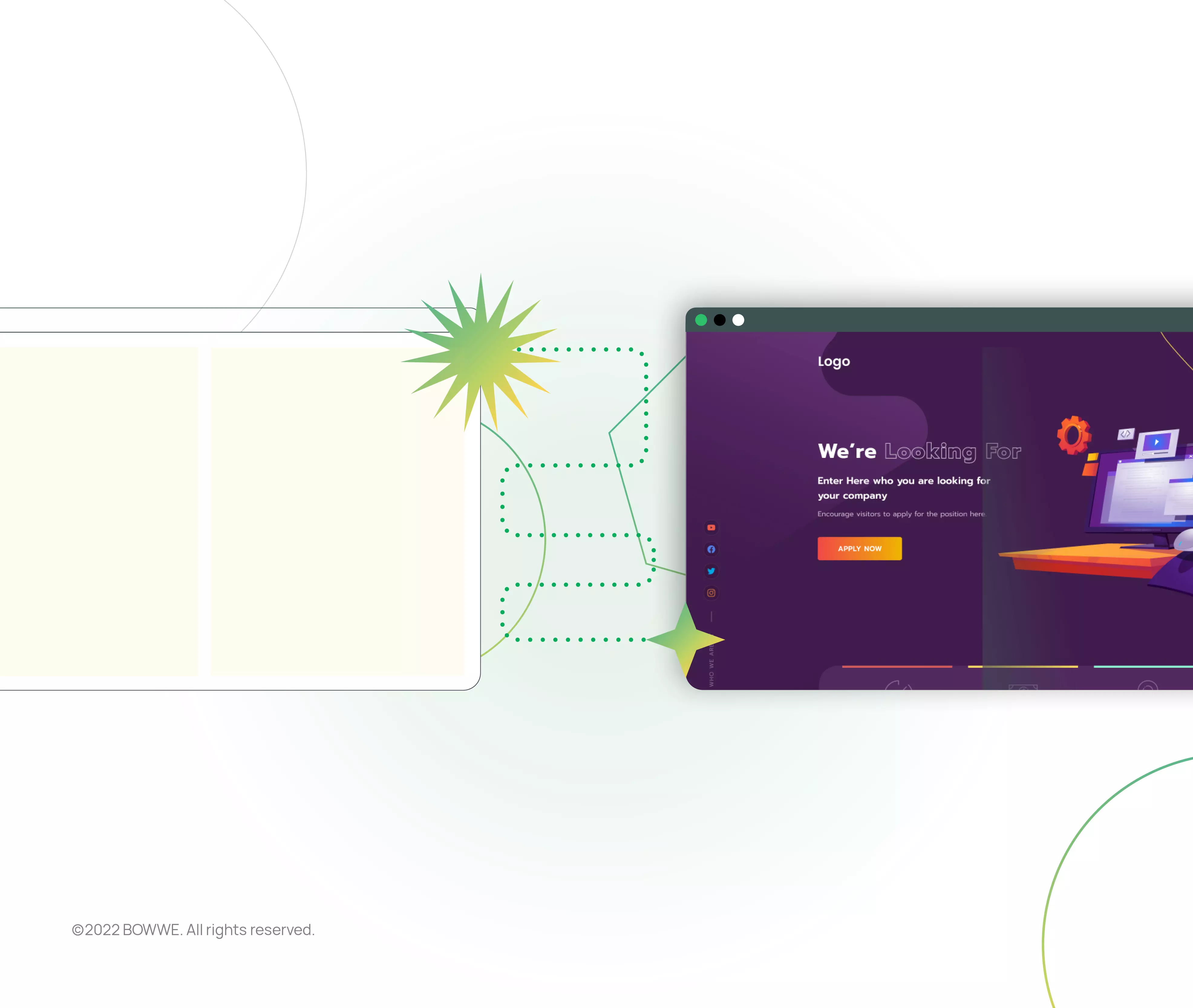
After creating the concept, it's time to move to the website building stage. Writing out a detailed site plan will guarantee that you will not miss essential elements. Here's how to how to design a website in just a few steps:
1. Create a site map
No matter what type of website you choose (one-page or multipage), it should have a well-thought-out structure. For this purpose, create a site map. Divide the page into main sections and subcategories. Drawing the site layout will help you logically arrange the most important elements and establish the hierarchy of individual sections. Here are the elements without which no website will function properly:
1.1 The website menu - an absolute must!
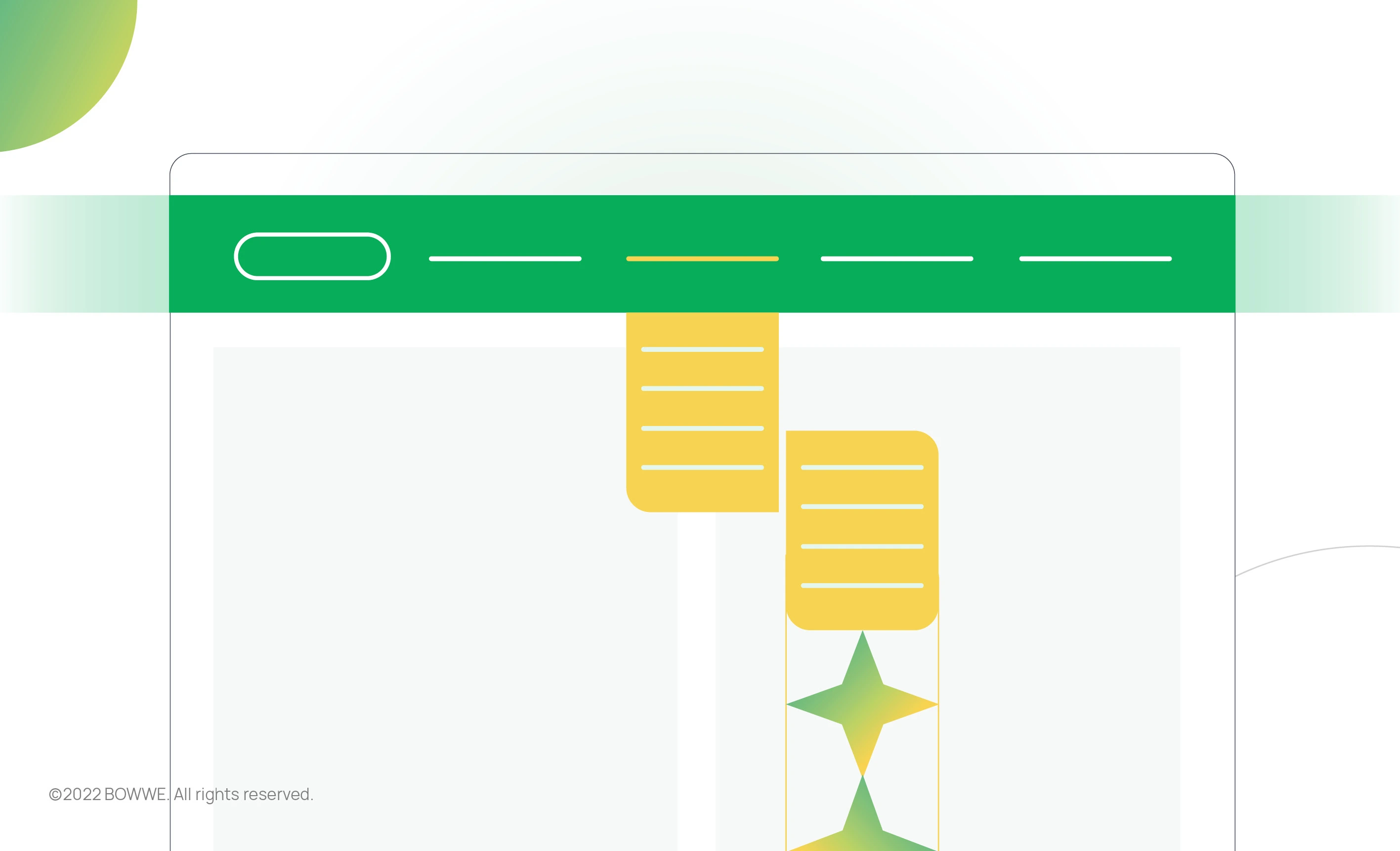
It is a necessary element on the page that facilitates navigation. In case of getting lost on a subpage, the user can easily return to the home page thanks to the menu. The website menu usually takes its place at the top of the site, but there are exceptions where the menu is placed on the side of the page. The navigation menu includes buttons that refer to specific subpages or - in the case of a one-page page - to a selected page fragment.
1.2 Homepage
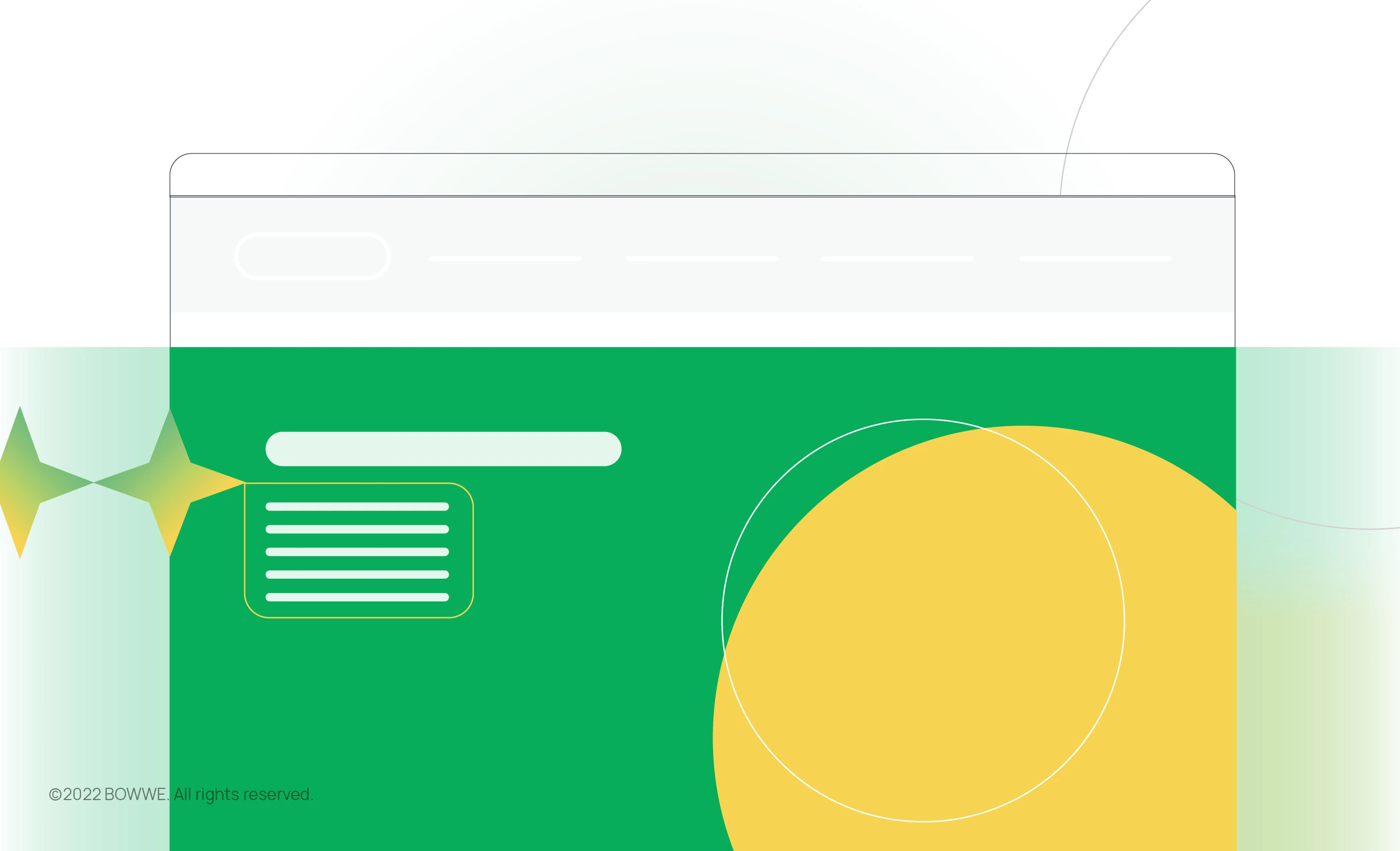
The home page is the most crucial element in the structure of any website. This is the first page visitors will see when they enter the page from a search engine. Therefore, it must be eye-catching and contain all the most important information. When making a homepage keep in mind that it is a kind of summary of the entire site's content.
1.3 The "about me" or "about the company" section
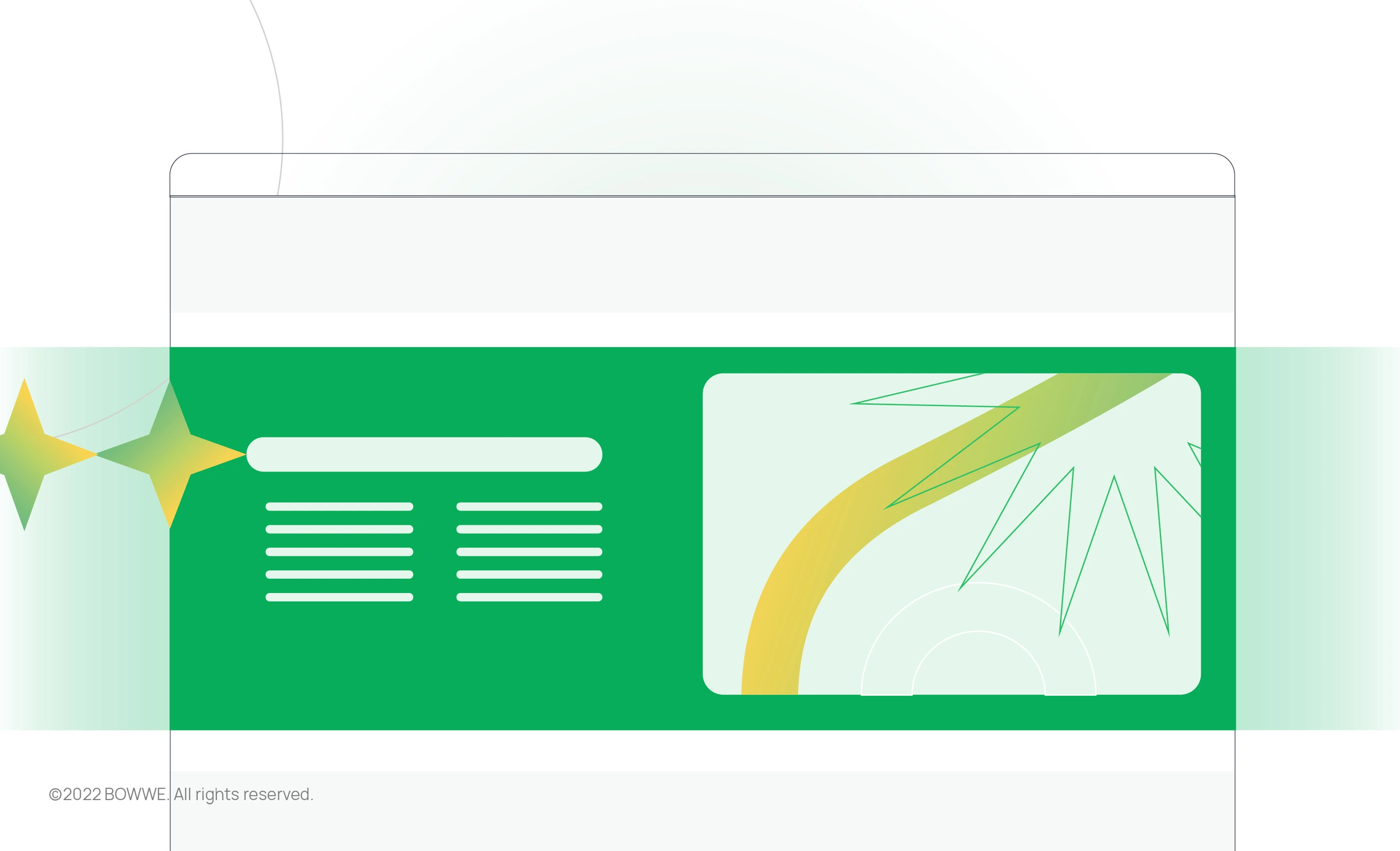
This is an extremely important part of the website, which is unfortunately often overlooked. This is a big mistake. Why? Visitors to your website will indeed be looking for detailed information about your business. So consider the "about me" section as a place to present yourself and your mission creatively. The company section will help you build users' trust and create a positive brand image.
1.4 Contact
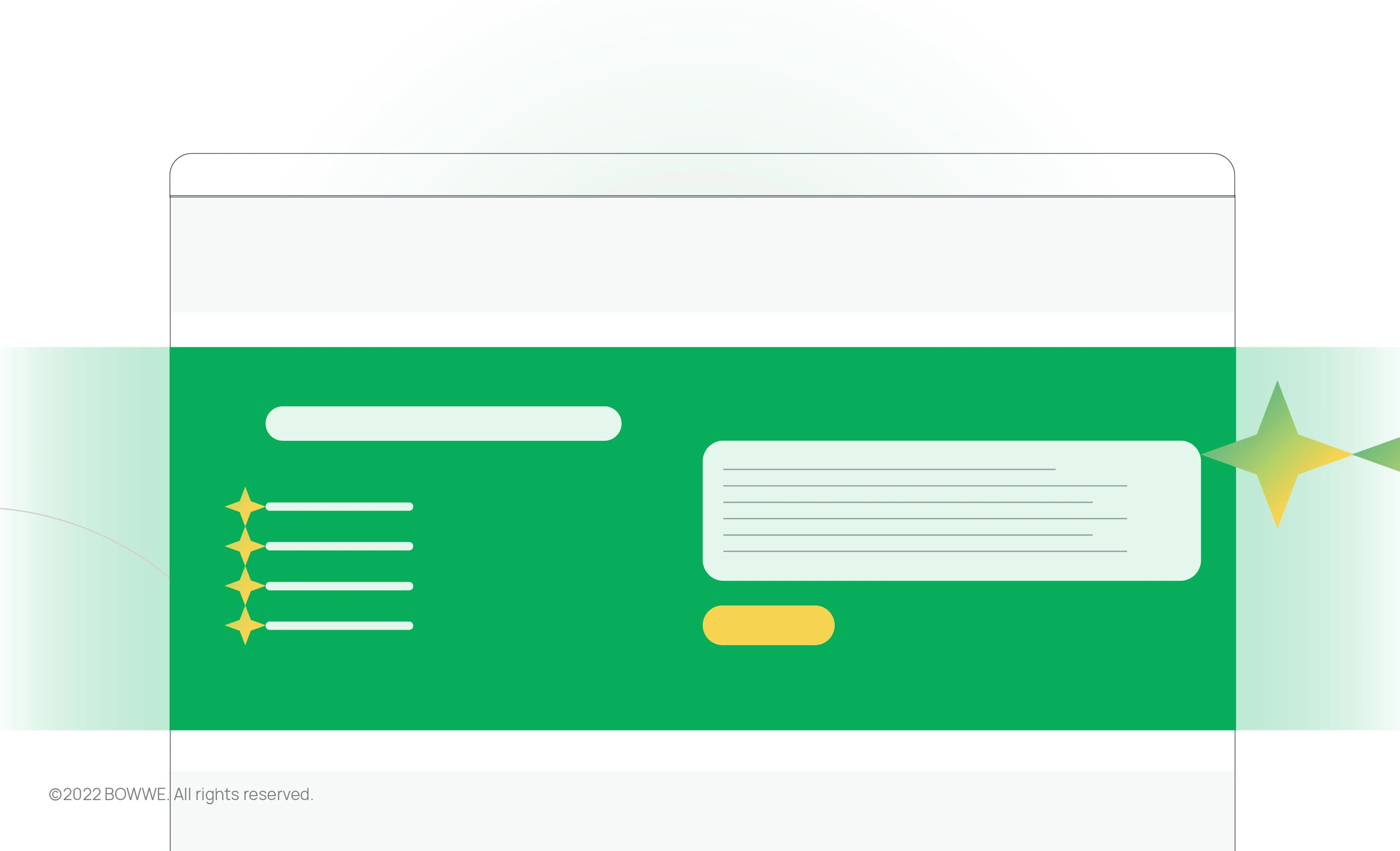
A good website should allow quick contact with you or your company. Typing your e-mail address in one place on the page is often not enough. An extensive contact page will help you to emphasize contact details. You can list several ways to contact you in this section. The more options you offer your audience, the more likely they will contact you. So post links to social media profiles, phone numbers, and a contact form.
1.5 Footer
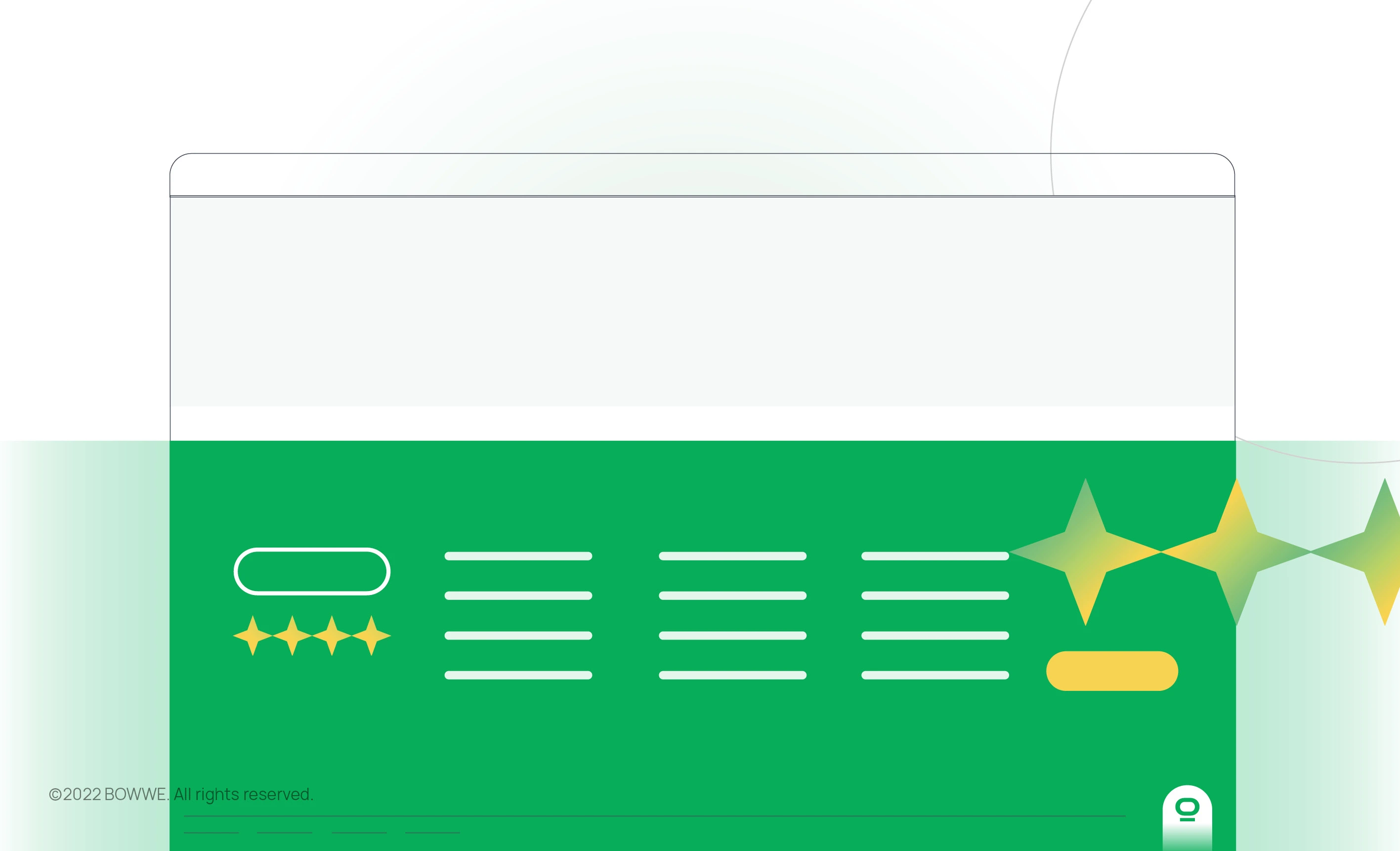
Don't forget the footer on your website! This small element at the bottom of the page plays an important role. The footer contains essential information for visitors. Thanks to it, users can quickly move to the most important categories on the website and preview contact details. It is worth making sure that the footer is on each subpage.
2. Think about the content of the website
Content page, in other words, the page's content is content and graphic elements. For the website to be popular among the recipients, it is worth ensuring the high quality of all texts and images. Here's what every professional website should include:
2.1 Engaging content
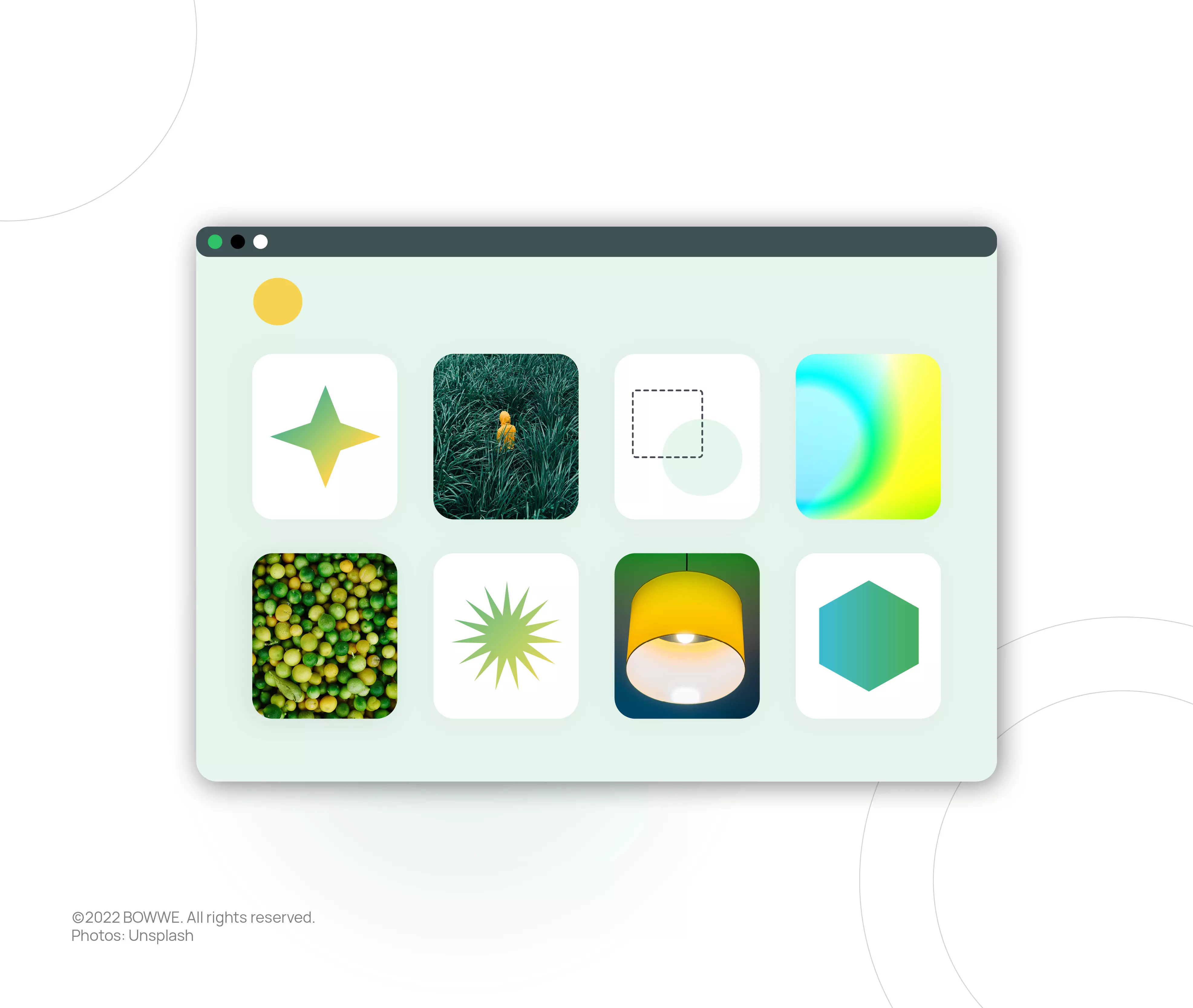
The foundation of your website is valuable content. Each sentence on your website should carry as much information as possible and draw the recipient into a journey through the website. Be sure to use simple language that is understandable to your target audience. Thanks to adequately selected content, you can build a really loyal community around your brand. So let's spend time developing the blog section. For this purpose, conduct research on topics related to your industry at the very first stage of building your website. Follow the latest trends and curiosities from the users' perspective. Also, make the content unique and bring specific benefits to the recipients. It is good to post guides to present attractive solutions step by step.
2.2 Beautiful photos
Photos are the most important visual element on the website. No website can make the right impression on your audience without imaginative images. However, remember an important rule - all the photos you plan to put on the website should be of sufficiently high resolution. For this purpose, you can use your resources, e.g., photos from a professional photo session, or obtain ready-made solutions from the Internet. For this purpose, use legal sources that offer free photos intended for commercial use, e.g., Pexels, Unsplash.
2.3 Effective graphics
Beautiful graphics are one of the most important visual elements on the website. It can make the recipients interested in your brand, or on the contrary - they will quickly leave the website and go to the competition. Therefore, it is worth developing an entire coherent graphic concept, from brand colors to minor visual elements. The exciting idea is to create a brand hero, i.e., a character who embodies your brand. Place an image with the brand hero on your home page, e.g., in the background photo.
Get started
No coding experience required.
2.4 Creative animations
Short videos or animations will instantly liven up any website and attract users' attention. With the help of simple animations, you can originally present your product. All kinds of explainers videos are a simple way to explain what your services are all about without using unnecessary words. However, remember not to overdo the amount of animation. Then you will achieve the opposite effect to the expected one, and you will disturb the page's readability.
2.5 A unique logo
A logo is not only a graphic element of a website, but most of all, it is an integral part of building the image and increasing brand awareness. While this is only one element, it can take a long time to create a good logo. So let's use the services of professionals who will design a unique logotype for you.
3. Design intuitive navigation
Navigating your website should be intuitive for users. The hassle-free navigation makes the site visitor-friendly. However, it sometimes happens that Internet users wander on your side and cannot find what they are interested in. When designing a website, it is worth following the principles of UX (User Experience). Here are the site design rules to help you build your page according to your visitors' expectations:
Include a navigation bar - it will direct visitors to your landing page and help you return to your home page at any time.
Use the principle of minimalism - take care of the so-called clean design, which is very functional. For this purpose, avoid placing too many elements on the website that will disturb the navigation.
Highlight clickable elements - users should have no doubts about whether a given part is clickable. So use different techniques to make clickable buttons visible. For example, you can apply a shadow around an element or animations or change the color on hover.
Use symbols instead of words - icons in the right places will improve your intuitive navigation. Instead of long lines of text that disturb the readability, include icons that will guide recipients to perform the desired action, e.g., a gear icon instead of the words Settings.
Test different solutions and choose the one that brings the best results. It is worth finding out the expectations and problems of your website users. Thanks to this, you will improve the navigation and improve the website's functionality constantly.
4. Take care of website details
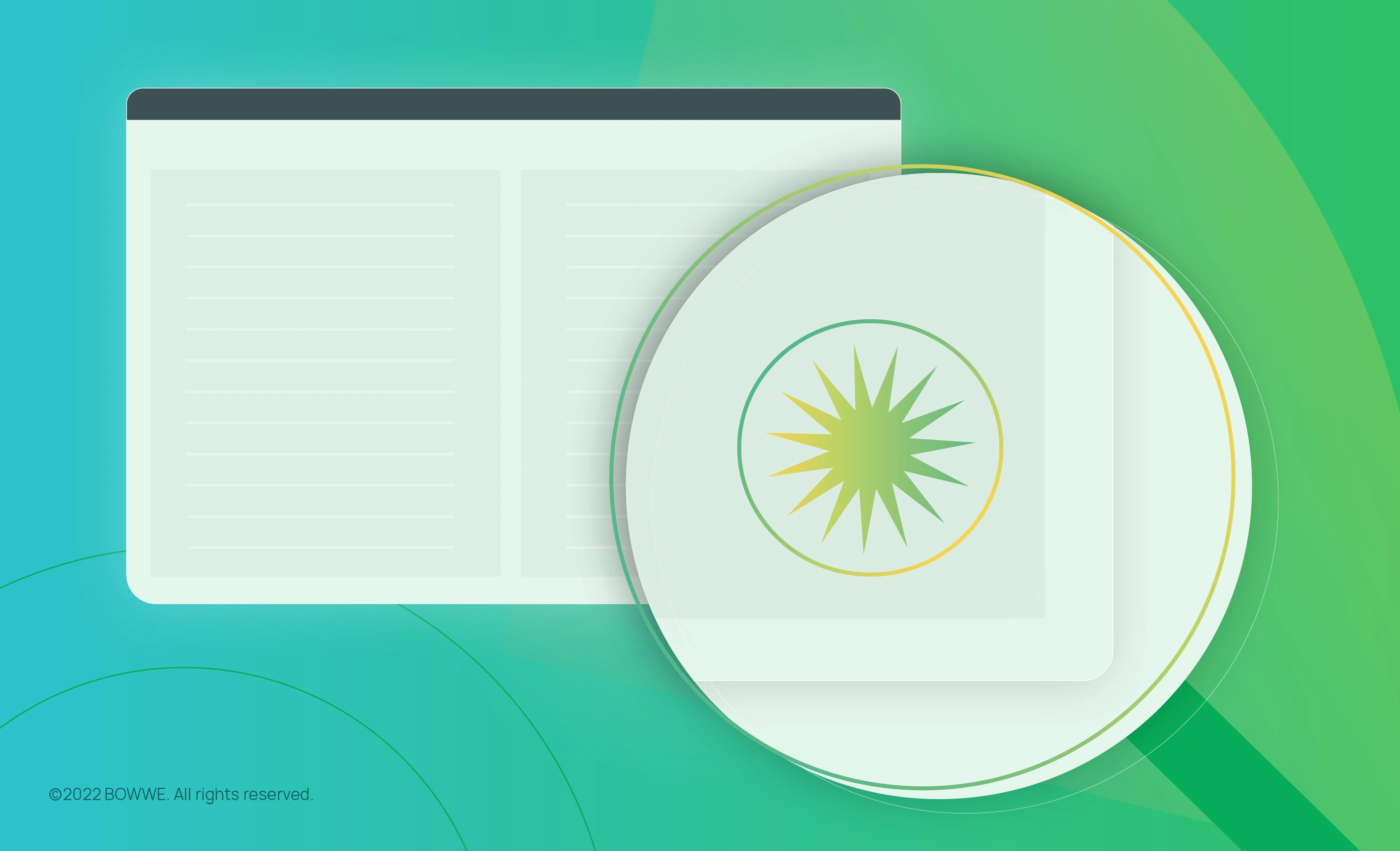
Here are the details that must be taken care of on the website, if you want to achieve satisfactory results:
4.1 Create a color palette
4.2 Match the font
The fonts on your site should be easy to read, and as with colors, you shouldn't mix too many fonts in the same design. It is enough to use up to three fonts in several sizes for headings, sub-headings, and content.
4.3 Keep the graphic elements consistent
No matter how beautiful the visual elements on your website are individual, they have to create one whole together. All graphic elements on the website should harmonize to create a coherent design. Therefore, it is crucial to select even the most minor graphic elements. Choose only the visuals that work best with your chosen colors and buttons.
4.4 Highlight the CTA
Call To Action buttons play a significant role on your website. Their task is to encourage users to perform the desired action, e.g., purchase a product or send a form. So let's use techniques that will direct your audience's attention to the CTA buttons on your website. Place the CTA buttons in a visible place on the page so that they do not escape visitors' attention. It is worth highlighting them with a vivid color that will contrast with the page's background. This will make the buttons properly visible.
5. Don't forget about the technical aspects
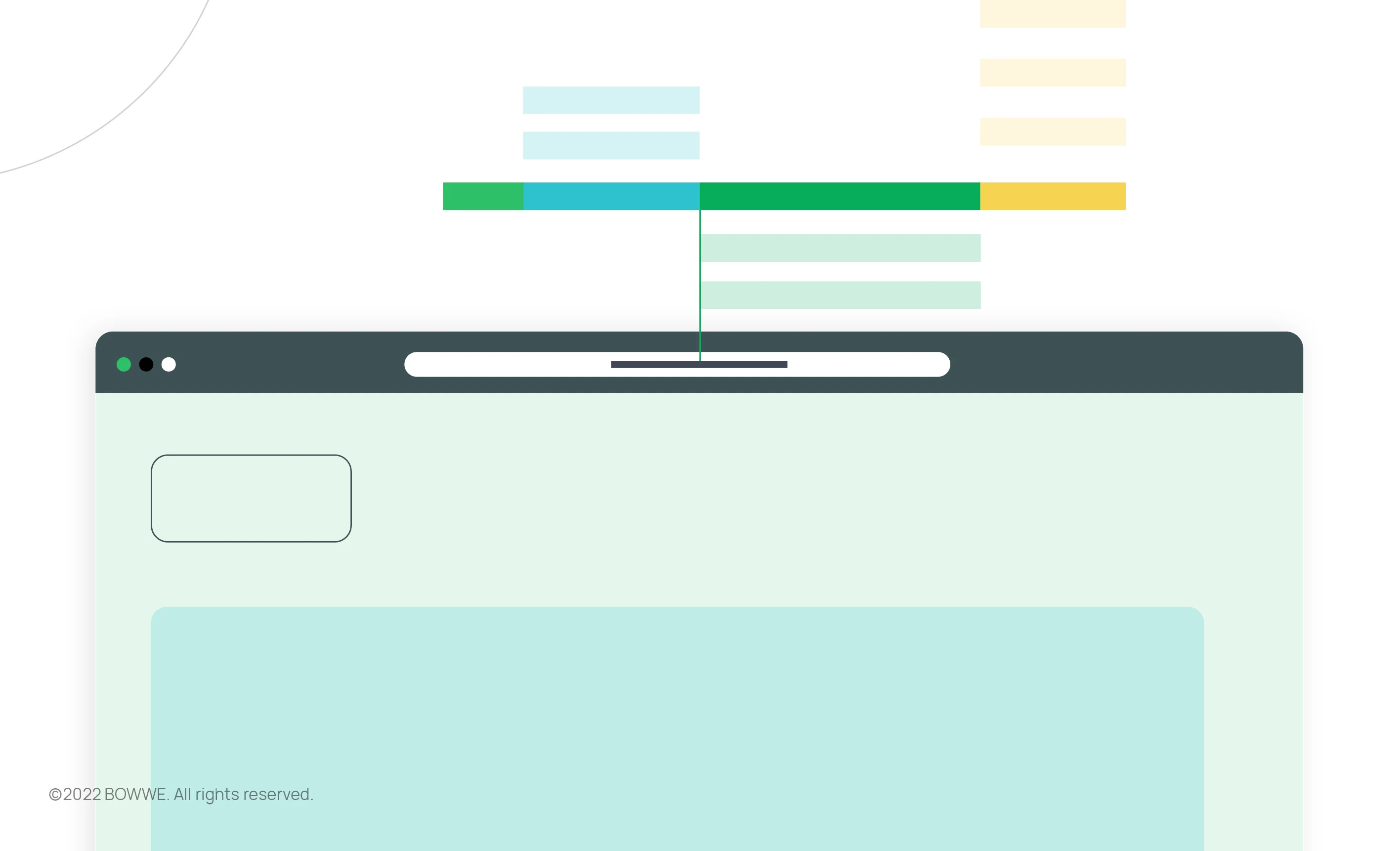
You already know how important the content is on the website and what elements your website should include. Apart from creating the website's structure, technical aspects should also be taken care of. It is mainly about the domain, hosting, or adaptation to mobile devices.
5.1 Domain selection
A domain is nothing but the name of your website. Here are the components of the domain:
- Name - the domain name should be unique and related to the area of your business. It is most often a company name or a first and last name.
- Extension - is the suffix in the domain name that follows the period. Most often, extensions are the designation of the country, such as: .pl, .de, .us, .fr, etc. We can also meet extensions that define the type of page, e.g., commercial (.com), government (.gov), or administrative sites (.org)
There are two options for acquiring a domain: registration for a specific period or buying your domain. To register a domain, first, check that it is not taken. If the domain with the chosen name is available, you need to complete the formalities on the domain registrar's website. The situation is much easier if you create your website in the wizard. Then you register the domain directly in the selected tool without unnecessary formalities.
5.2 Hosting
Hosting allows you to store website files on the server. Thanks to this, your website is visible on the web. As with domain registration, hosting service is paid in many cases. When choosing a hosting provider, pay attention to the relevant server parameters, e.g., capacity and transfer.
Currently, Cloud solutions are getting more popular with which you have immediate hosting available. Additionally, they have updates introduced all the time, for which you don't even have to pay. When using such solutions, you also don't need to make backups. BOWWE is an excellent example of a "cloud" based tool that provides instant hosting and regular (and free) updates.
5.3 SSL certificate
The SSL certificate confirms the security of your website. However, generating a certificate is quite a complicated process that should not be overlooked. Uncertified sites are considered unsafe by popular search engines. So it is an essential technical aspect without which your website will not function correctly.
Website builders make it easy for users to get a security certificate. In BOWWE, connecting an SSL certificate is done with a few clicks.
5.4 Responsiveness
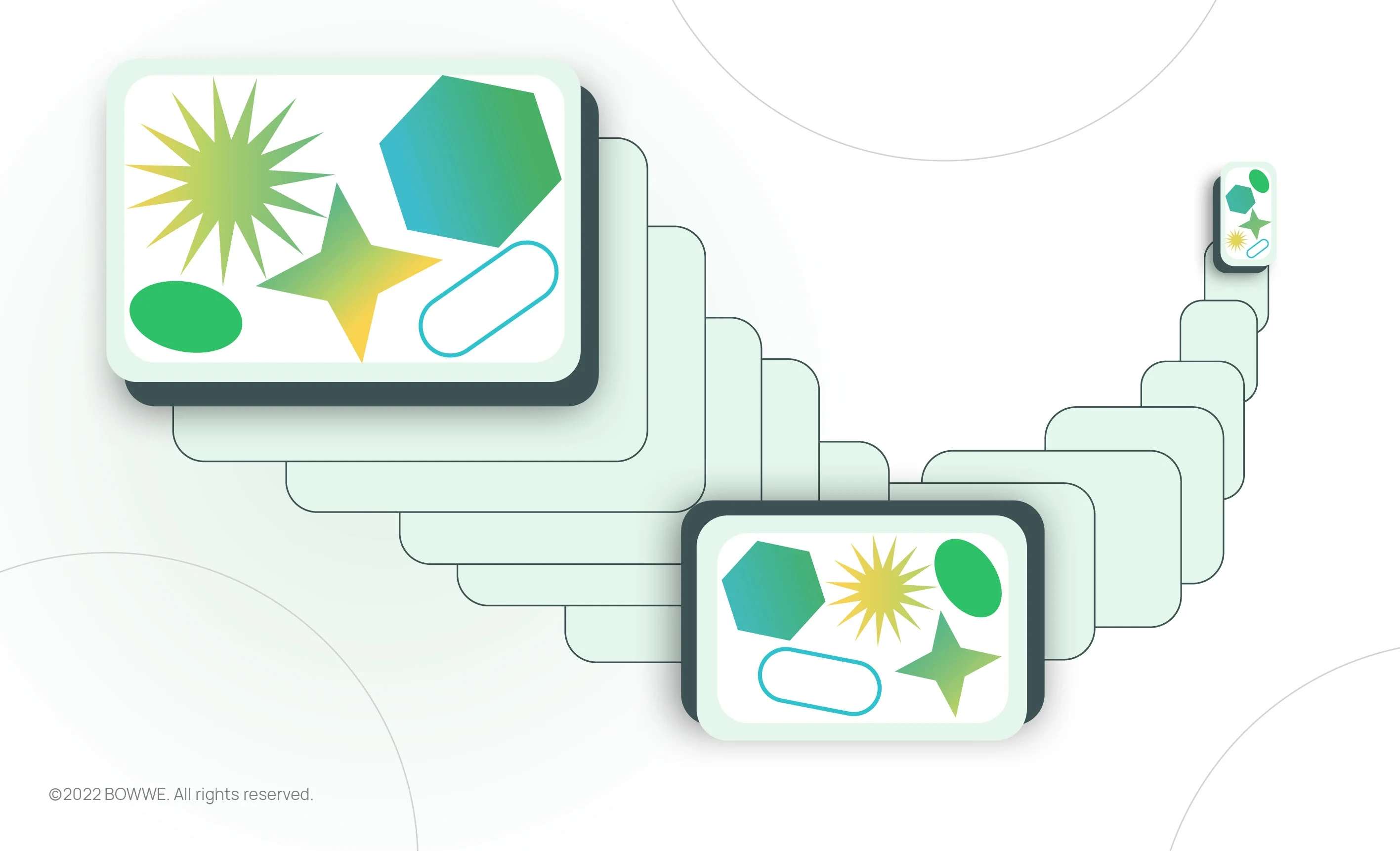
Responsiveness is the adaptation of a website to be displayed on various devices' screens. Nowadays, it is essential because many internet users will be browsing your website from smartphones or tablets. So make sure your website looks nice on desktop and laptop screens and all mobile devices.
6. Explore the possibilities of creating a website
There are several options for creating a website. Before choosing, it is worth considering the pros and cons of each option and being guided by the level of advancement and individual needs. To help you decide and choose the best solution, in this section, we will briefly discuss the most popular ways to build a website.
6.1 Website execution order
The first and most straightforward solution is to have your website built by professionals. In this case, you don't have to worry about anything or put any effort into making the website. However, there are several downsides to this option. First of all, the high cost of the website implementation service. The best web designers earn up to several thousand per design. Another trap is choosing a specialist. If you want to save and decide to work as a less experienced freelancer, you risk that the results will not be satisfactory. You should also consider that building your website is a long process. So your task will be to monitor the web designer's work if you want everything to go according to your expectations.
6.2 Create your website
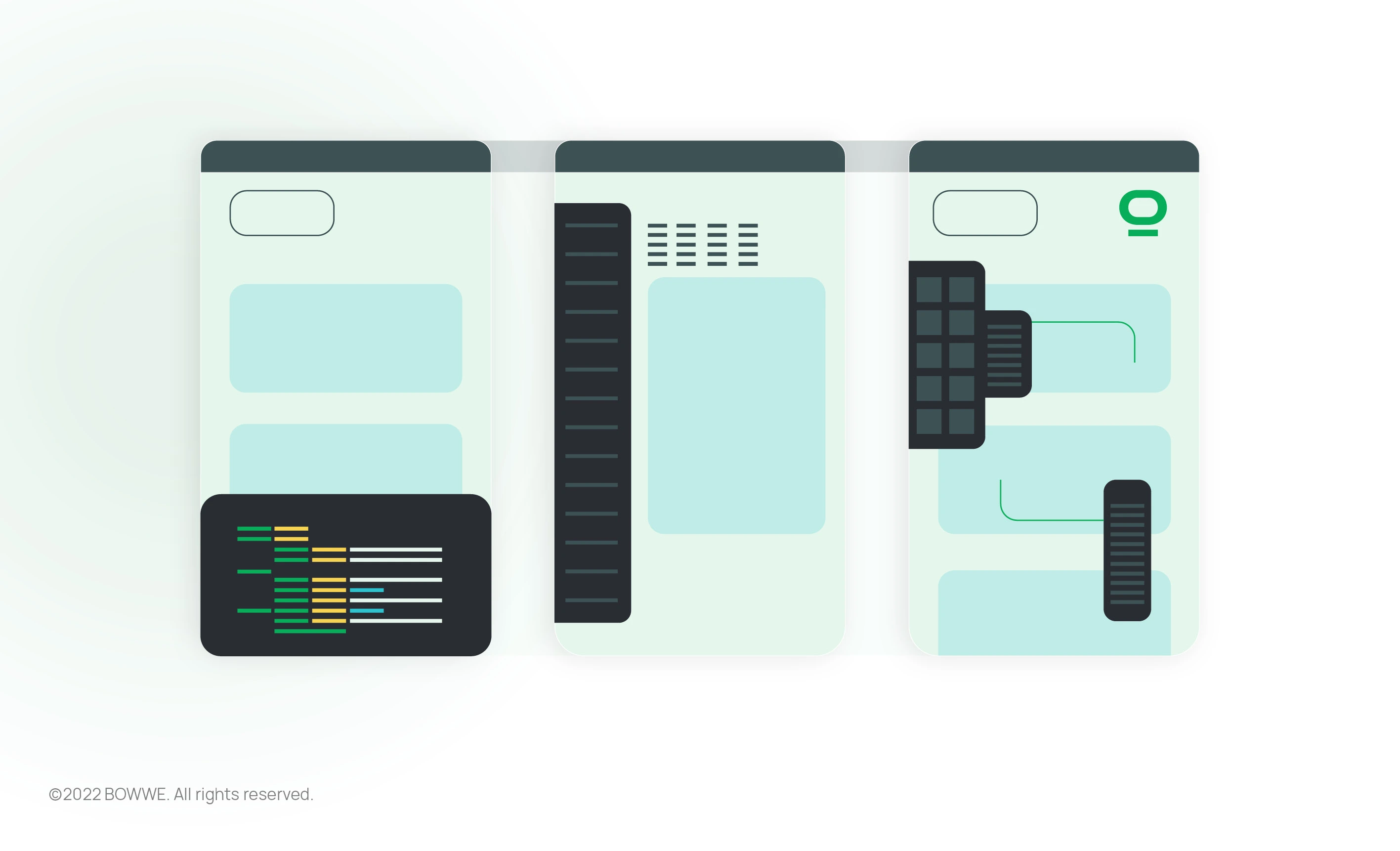
If you want to try your hand at designing a website, there are three most proven ways to create it yourself. Which one to choose? It all depends on your skills and requirements for the website.
6.2.1 Coding from scratch
The most challenging option is to create the entire page code from scratch using HTML or other programming languages, such as JavaScript or CSS. Specialist programming knowledge is required here. A person with no experience will take a long time to create even the most straightforward website. It will also be difficult to achieve satisfactory results. This option is NOT for people who:
- have no coding experience,
- they care about creating a website quickly,
- want to design a professional website on their own,
- they want to create a user-friendly website with a beautiful design intuitively.
However, is it possible to create a website from scratch without coding? Yes, of course! You have two options to choose from:
Get started
No coding experience required.
Website Builders are intuitive tools for creating your pages. Thanks to the tools, you can build your website without coding. The most crucial advantage of tools is their easy operation and many design options. This is an ideal option for people who cannot code. Creators allow you to quickly and intuitively create a professional-looking website according to your expectations. Creating pages in the tool is highly affordable. You can see all the results of your work from the users' point of view at once. A simple drag & drop technique (i.e., drag and drop) allows you to modify the graphics and content freely. Thanks to this, website design turns into pure pleasure. A few clicks are enough to design and publish a fully-fledged website.
How much does it cost to create a website?
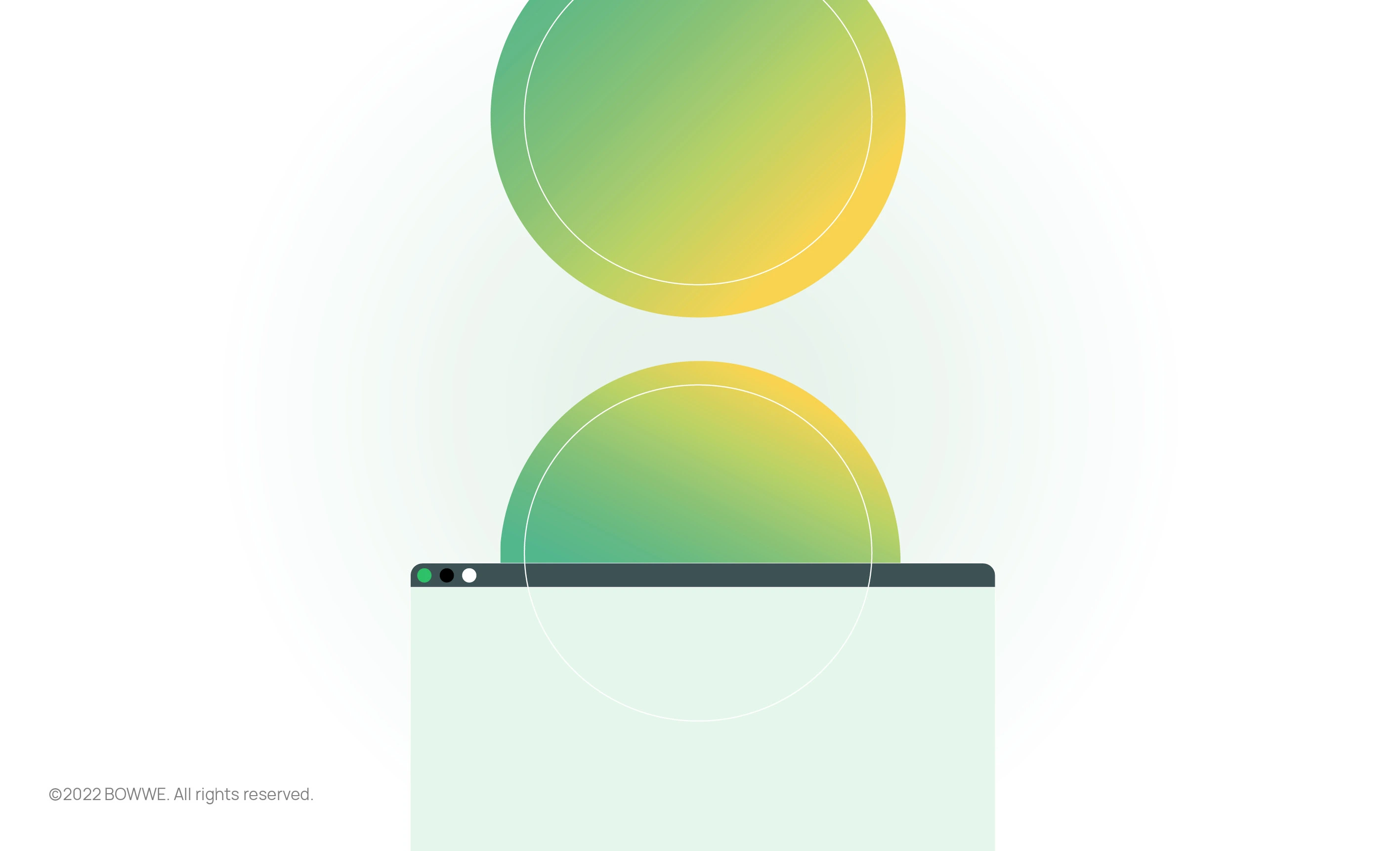
Creating a website can be an exciting and important step for any business or individual looking to establish an online presence. However, one question that often arises is how much it will cost. The answer is not a straightforward one, as the cost of building a website can vary greatly depending on factors such as its size, complexity, and the type of website builder or developer you use. It can range anywhere from a few dollars (using website builders) for a simple website to tens of thousands of dollars for a custom-built, highly functional site. The bottom line is, your budget will play a significant role in determining the final cost of your website. But don't let that discourage you! With the right planning and research, you can create a professional and effective website that fits your needs and budget.
How to create a website by yourself - summary
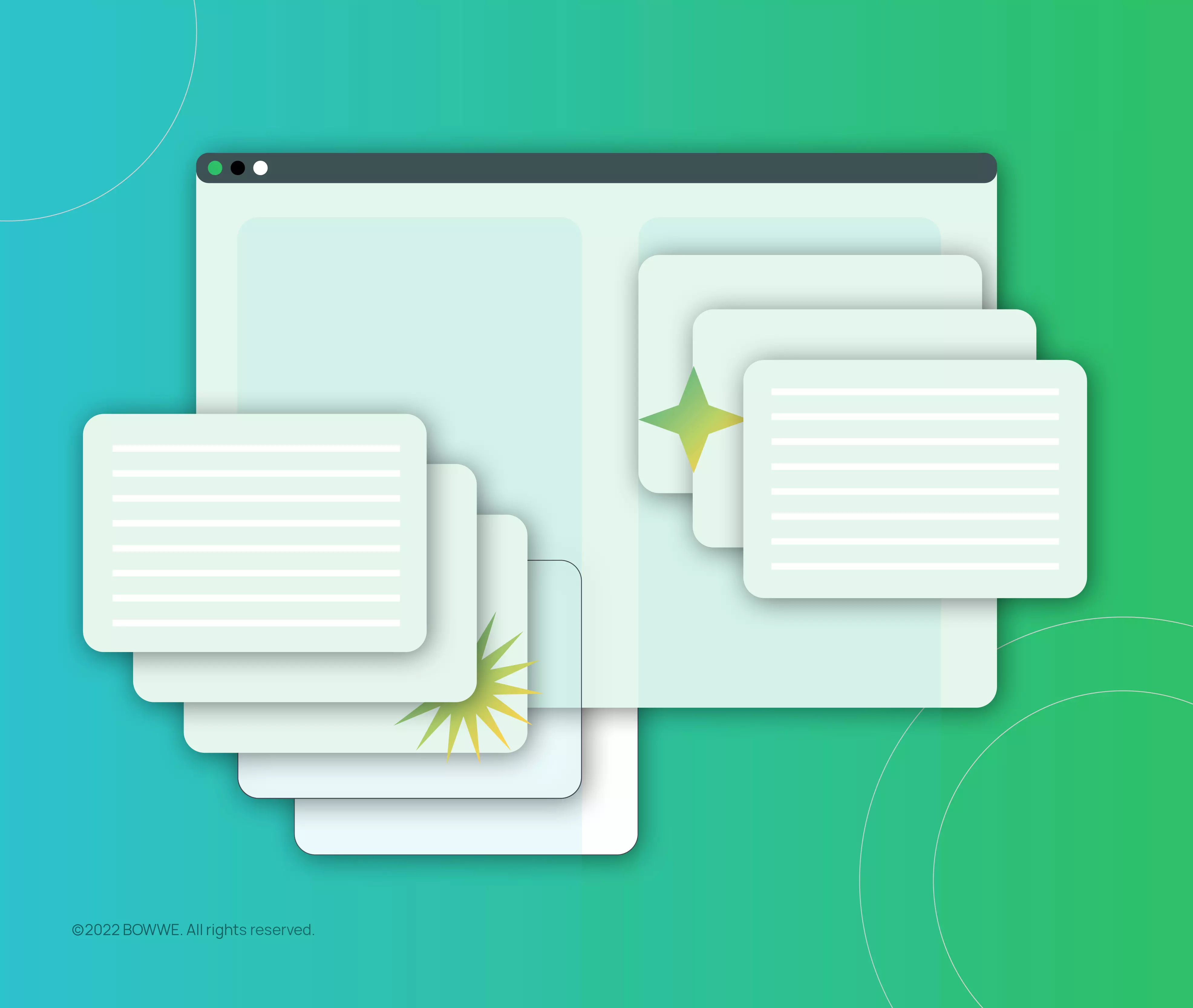
Currently, a website is a communication channel with great potential, which is necessary to increase the visibility of your business on the web. Do you want to sell your products on the Internet, present your services, or maybe create an online business card? You can do all of this via the website. So let's make sure that your website is built professionally from scratch.
Start Here!
Building a professional website - FAQ
How do I create a professional website for free?
Go to bowwe.com and create a free account. Choose how you want to create a website and start to develop it! Then all you have to do is publish your stunning website.
How can I create my own professional website?
1. Plan out the structure of your website by creating a sitemap.
2. Consider what kind of content you want to include on your website.
3. Make sure your website's navigation is easy for users to understand.
4. Pay attention to small details like typography and images.
5. Make sure the technical aspects of your website are taken care of.
6. Experiment with different website design possibilities.
How long does it take to build a website from scratch?
It depends on many factors, including how the website is built. For example, if you commission a programmer to create it, its creation may take several days or months.
When using a website builder, it takes a few hours to a few days to build a website from scratch (and even faster when using a website template).
Is it hard to create a website?
Not if you use the right tools like website builders. They make the website development process much faster and easier, even for people without IT knowledge.

Karol is a serial entrepreneur, e-commerce speaker m.in for the World Bank, and founder of 3 startups, as part of which he has advised several hundred companies. He was also responsible for projects of the largest financial institutions in Europe, with the smallest project being worth over €50 million.
He has two master's degrees, one in Computer Science and the other in Marketing Management, obtained during his studies in Poland and Portugal. He gained experience in Silicon Valley and while running companies in many countries, including Poland, Portugal, the United States, and Great Britain. For over ten years, he has been helping startups, financial institutions, small and medium-sized enterprises to improve their functioning through digitization.

